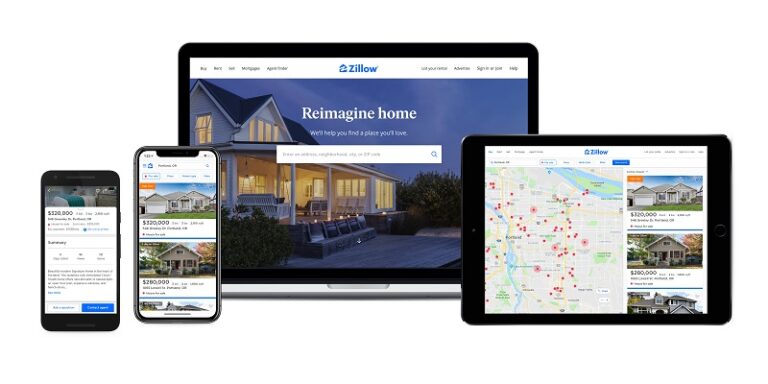✈️ 20 Travel Startup Ideas (Low-to-Mid Budget)
I discussed the many business opportunities in travel for VC investors and entrepreneurs and want to expand with some practical possibilities that you might find very interesting (and profitable).
It’s a billion-dollar industry of course, and has a bright future despite current geopolitical, migration, and recessionary issues.
People do love the novelty of travel experiences and the rejuvenation of their spirit when they travel to places that are personally relevant to them. We saw how powerful the revenge travel phenomenon was. Forecasts for the US economy, global economy and stock markets is positive. Even if it doesn’t continue on a bull market trend, it’s still a growth projection.
Know What VC Investors are Pursuing
With travel destinations growing and technology making travel easier, safer and more reliable, travelers will be booking and taking trips. And those expenditures add up. For a VC investor and entrepreneur, there is a wealth of potential. And what a great industry to be involved in. So many benefits to a career in travel and investing in a travel company.
Venture capitalists are investing in innovative travel tech and hospitality startups, focusing on companies in areas like booking technology, experience enhancement, and operational efficiency. Investors are particularly interested in startups that use technology to improve the entire travel journey, from initial planning and booking to the on-the-ground experience and post-trip interactions. Owning the entire customer experience is essential which brings travel marketing’s value into focus as well.
You can view the US travel market outlook and the 5 year travel report, and a post on the overtourism threat to gauge how the market is shaping up for the next 10 years and more. Certainly, AI is making a big impact, but it’s influence on the speed of change and how it’s optimizing travel across the planet will ease off to normalize. Everyone will take it for granted, just as we take smartphones and the internet for granted today.
Let’s get right to what you’re after, some great travel startup business ideas!
20 Interesting and Exciting Potential Ideas or Concepts to Consider:
| 20 Travel Startup Ideas (Low-to-Mid Budget) | ||||
| Startup Idea | What It Does / Value Proposition | Why It’s Doable with <$1M | Key Challenges | |
| 1 | AI itinerary planner | Use AI to generate curated multi-day itineraries (flights, lodging, experiences) based on traveler preferences, budget, and time. | MVP can be built with lean dev & APIs; marketing via content/SEO/social. | Data access (flights/hotels), UX; trust; scaling personalization. |
| 2 | Local-experiences marketplace | Connect local hosts/artisans offering workshops, cultural tours, food experiences with travelers. | Low inventory cost; host-supplied; marketing via niche audiences. | Quality control; vetting; payments; insurance/liability. |
| 3 | Trip finance & insurance bundling | Bundle travel insurance, cancellations, sometimes financing (installments) at point-of-sale for experiences or trips. | Leverages partnerships; can start with small set of services. | Regulatory compliance; margins; building trust; API partners. |
| 4 | Mobile guides / audio walking tours | App or downloadable content offering narrated walks, offline map + storytelling in cities. | Content creation is upfront; app distribution; digital product = high margin. | Rights/licensing; keeping content updated; monetization (one-off or subscription). |
| 5 | Nomad / long-stay housing platform | Listing + management of apartments/houses suited to remote workers (long stays, cowork + coliving). | Similar to vacation rentals, but with twist; revenue from management fees. | Regulatory / zoning issues in different cities; seasonal demand; maintenance. |
| 6 | Adventure gear rental marketplace | Rent equipment for adventure travel (bikes, surf boards, camping gear) locally rather than buying. | Lower inventory or partner with owners; localized operations. | Logistics; damage / loss; insurance; scaling in different geographies. |
| 7 | Travel wellness retreats aggregator | Curate and book wellness retreats: yoga, detox, spa, meditation, etc. | Niche audience, higher willingness to spend; fewer, more curated listings; can partner with existing retreat venues. | Seasonal; quality control; cancellations; managing expectations. |
| 8 | Senior travel / accessible travel concierge | Specializing in travel for older travelers or travelers with mobility issues: tailor itineraries, accessible lodging, health support. | Differentiated service; less competition; emotional/niche appeal. | Liability; extra costs for accessibility; marketing to older demographics. |
| 9 | Travel content / influencer incubator | Help micro-influencers or content creators monetize travel content via deals, affiliate, creation & repurposing. | Very low overhead; leverage existing content + platforms; partner with brands. | Saturated market; algorithm risk; dependency on platforms. |
| 10 | Language / cultural prep service | Pre-travel micro-courses: language basics, cultural norms, packing & safety, customs etc., for specific destinations. | Digital product; scalable; good upsell potential. | Content relevance; competition; finding and retaining customers. |
| 11 | Sustainable / carbon-neutral travel platform | Help travelers find eco-friendly lodging, transport, experiences; offset carbon; promote regenerative tourism. | Growing consumer demand; could start in few destinations. | Verifying sustainability; cost premium; supply side constraints. |
| 12 | Group trip planning for niche groups | Trips for specific segments (e.g. photographers, bird watchers, gastronomy lovers) organized end-to-end. | Community builds word-of-mouth; higher per-customer ticket; package model. | Coordination; logistics; small margins; managing expectations. |
| 13 | Digital nomad support services | Services for remote workers: visa help, coworking discounts, local SIM / connectivity, relocation/package services. | Add on to housing or long-stay business; subscription or membership models. | Legal complexity; local regulations; scaling globally. |
| 14 | Travel loyalty / rewards + memberships | Create a membership/subscription that gives access to perks, discounts, or unique experiences for frequent travelers. | Recurring revenue model; better lifetime value; potential partnerships with hotels/airlines. | Negotiating partner deals; keeping value high enough; retention. |
| 15 | Guide & operator SaaS tools | Software for small tour operators, local guides, boutique lodging to manage booking, payments, CRM, reviews, etc. | B2B SaaS tends to have better margins; smaller support required; many underserved operators. | Onboarding; local payment/gov/reg issues; churn; localization. |
| 16 | Multi-modal transport aggregator | Platform that combines trains, buses, ferries, flights to offer cheaper/more sustainable routes especially in regions outside major markets. | Use existing transport APIs; focus on less competitive regions. | Data/API availability; customer service; reliability of operators. |
| 17 | Travel-themed e-commerce / curated products | Gear, packing tools, travel-friendly clothing, eco travel products, destination gifts etc. | Dropshipping or small inventory; niche branding; global shipping. | Fulfillment; shipping costs; margins; competition. |
| 18 | Pop-up boutique hotels / glamping experiences | Temporary or small scale unique lodging in underserved or scenic places (glamping, tiny homes). | Can lease or partner; small capacity; good margins. | Land access; maintenance; seasonality; regulation. |
That’s 20 good ones to consider. These 5 below might offer the best ROI, where you might want to drill down on.
| Top 5 Travel Business Comparison Table | ||||
| Idea | Margins | Startup Cost Barrier | Scalability | Risk Level |
| AI Itinerary Planner | High | Medium (AI/tech dev) | Global | Medium (competition, APIs) |
| Local Experiences Marketplace | Moderate-High | Low (supply from hosts) | Global | Medium-High (quality control, trust) |
| Nomad / Long-Stay Housing | High | Medium (supply partnerships) | Global | Medium (regulation, ops complexity) |
| Guide/Operator SaaS | High | Medium (product build) | Global B2B | Low-Medium (adoption, education) |
| Multi-Modal Transport Aggregator | High | Medium-High (API integration, ops) | Global | High (logistics, operator reliability) |
Given how a travel company can be designed to capture local markets, and how it can be scaled up to capture state, regional, national and global markets, it offers more of open-ended sales possibilities. Travel is less affected by tariff wars too. Babyboomer, Gen Xers, Millennials and GenZ’s all love travel. Given technology including AI are bringing change, it’s stiring up the still waters and creating new investment/business models. This is key to finding and building a great travel company.
Book your tickets to some upcoming travel and tourism conferences and tour operator conventions to connect first hand with companies that are already successful with strong marketing and promotional campaigns. Networking with them will pay off and you’ll have a great feel for the industry.
Good luck with your travel business venture, and stay in touch because I may be able to help!
See more on Gord Collins travel marketing services.







